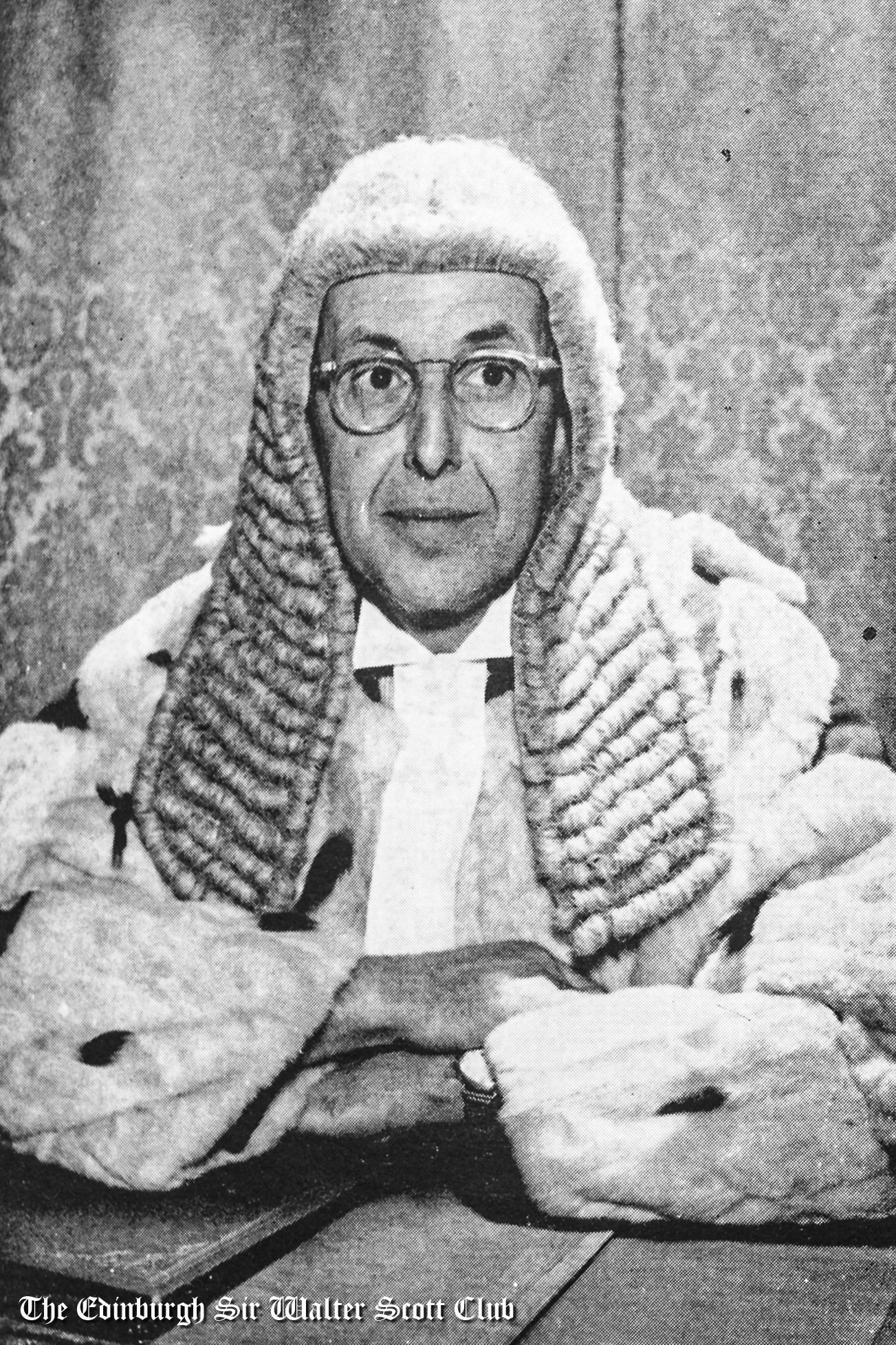1961
Our President in 1961/62 was:
The Right Hon. Lord Clyde, The Lord Justice General
He proposed the Toast to Sir Walter at our 54th Annual Dinner on Friday 2nd March 1962 in The North British Hotel
Download the [transcript] or read the [bulletin]
Summary of the Speech:
Lord Clyde delivered an eloquent and heartfelt tribute to Sir Walter Scott, which began with reflections on the unexpected death of the intended speaker, Lord Birkett. The speech pivoted from a humorous account of how Lord Clyde was “cornered” into accepting the speaking role, to a deeply sincere and scholarly examination of Scott’s life, particularly his legal career.
Key Points:
1. Tribute to Lord Birkett
- Originally scheduled to deliver the toast, Lord Birkett died suddenly, and Lord Clyde paid moving tribute to him.
- Clyde shared vivid personal memories of Birkett: his courtroom brilliance, humility, literary fluency, and his decisive final speech in the House of Lords, which helped prevent environmental damage to Ullswater.
2. Scott’s Overlooked Legal Career
- Lord Clyde aimed to revive attention to Scott’s often-forgotten legal profession.
- Scott served as Sheriff of Selkirkshire and later as Principal Clerk of Session, roles he fulfilled while simultaneously becoming a world-famous literary figure.
- His judgments were later praised by Sheriff Chisholm for their meticulousness.
3. Parliament House and Legal Tradition
- Clyde eloquently described the inspirational effect of Parliament House on young lawyers, including Scott.
- Scott’s immersion in the legal environment deeply influenced his understanding of human nature, which in turn shaped his literary work.
4. Personal Character and Resilience
- Clyde celebrated Scott’s perseverance after financial ruin from the Ballantyne bankruptcy.
- Rather than flee his debts, Scott embarked on a monumental writing campaign to repay them.
- A poignant minute from Scott’s creditors in 1832 praised his “unrivalled talents under misfortunes and difficulties.”
5. Historical Legacy
- Clyde highlighted how Scott’s legal insights, literary genius, and personal nobility combined to create a uniquely enduring national legacy.
- He noted Scott’s massive literary presence in the National Library of Scotland (950–1,000 entries), including manuscripts and personal letters.
Notable and Interesting Details:
- Scott’s humorous Latin thesis on corpses (de cadaveribus damnatorum) was dedicated to the famously grim Lord Braxfield.
- A pencil sketch of Scott, inscribed by Mark Napier, shows him at work in court with the caption:
“Sir Walter as he was, 1829, sitting under the Lords as Clerk of Session, thinking of anything but his business.” - Lord Clyde’s tone weaved erudition, humour, and reverence—turning what began as a reluctant appointment into one of the most personal and deeply informed tributes in the Club's history.
Download the [transcript] or read the [bulletin]

Subsidiary Toasts
The toasts of “The Queen” and “The Royal Family” were duly honoured.
Thereafter the Rev. Nevile Davidson, D.D., Moderator-Designate of the General Assembly of the Church of Scotland, proposed the toast of “The Imperial Forces” to which Lt.-Gen. W. F. R. Turner, C.B.E., D.S.O., replied.
“The City of Edinburgh” was proposed by Professor Sir Derrick M. Dunlop, B.A., M.D., F.R.C.P., and the Rt. Hon. Sir John Greig Dunbar, the Lord Provost, responded.
The toast of “The Chairman” was proposed by Arthur Melville Clark, Esq., D.Phil., D.Litt., F.R.S.E.


